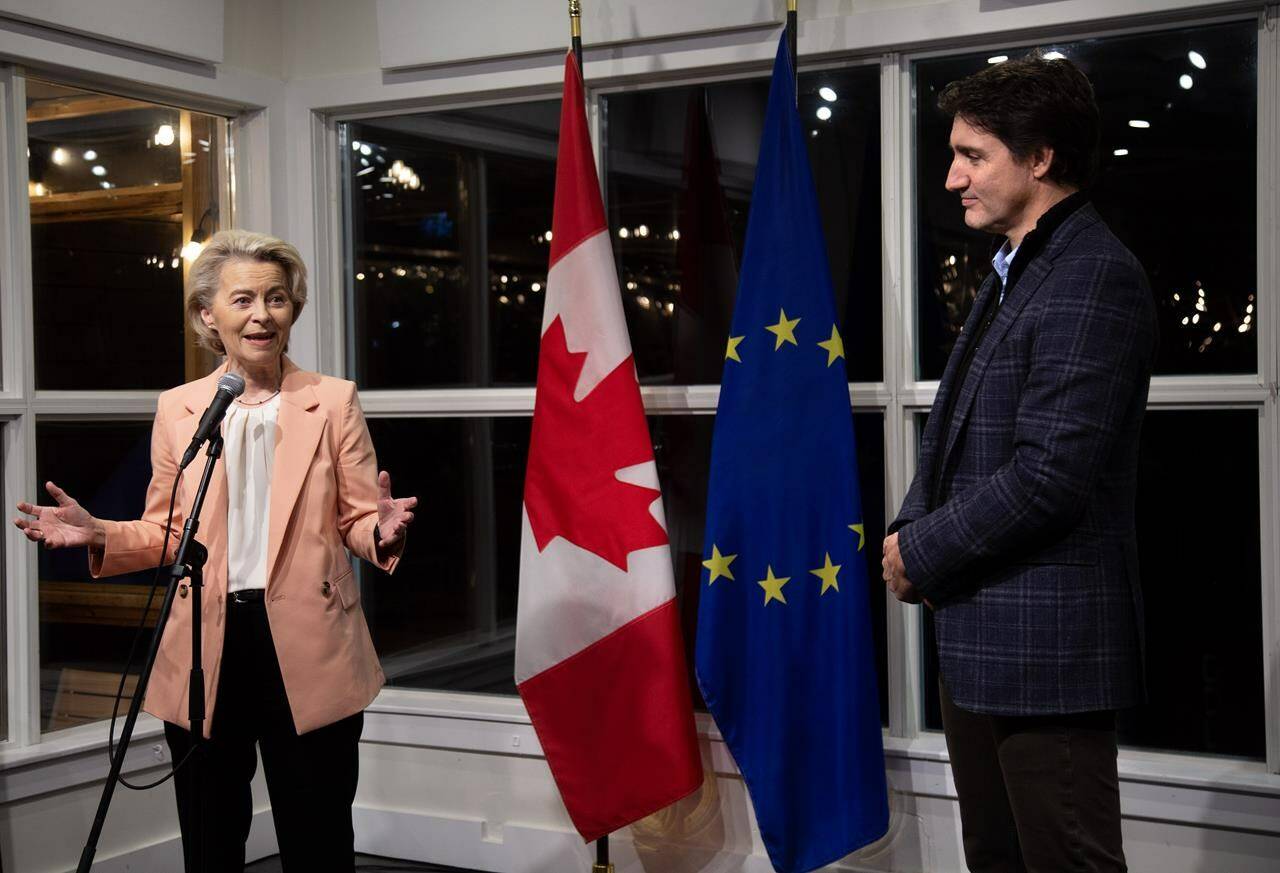European Council President Charles Michel reiterated Europe’s support for a two-state solution in the Middle East before formal talks got underway this morning at the EU-Canada Summit in Newfoundland.
Michel told reporters in St. John’s the leaders will also discuss Israel’s right to defend itself within the bounds of international law and the humanitarian crisis in Gaza.
He says the meeting will include conversations about how to best support Ukraine and sanction Russia.
Prime Minister Justin Trudeau did not directly address the war between Israel and Hamas nor the Russian invasion of Ukraine, but he acknowledged the summit is happening as the world faces “extremely complex times.”
The leaders say climate change and hydrogen energy will also be top of mind.
Michel and European Commission President Ursula von der Leyen are set to spend this morning in talks with Trudeau, and a press conference is scheduled for later.
Von der Leyen told reporters she was relieved Israel and Hamas had reached an agreement to swap hostages today as a four-day ceasefire is set to begin in Gaza.
A group of about two dozen pro-Palestinian protesters stood outside the small St. John’s pub where Trudeau welcomed the European leaders on Thursday night, chanting, “Ceasefire now!”
Jeremy Kinsman, a former Canadian ambassador to the EU in Brussels, says both parties are likely thinking their strategic partnership will become much more vital if Donald Trump manages to win the United States presidency again.
Achim Hurrelmann, a political scientist at Carleton University who co-directs the school’s Centre for European Studies, agreed, noting that the EU and Canada pulled closer during Trump’s presidency.
Hurrelmann says the summit is routine, though he says he expects a fair bit of discussion about green energy, especially with meetings being held in Newfoundland, where several green hydrogen projects have been proposed with Germany as a target market.
“Something that I’ve sometimes heard said about the EU-Canada relationship is that it’s a problem that there are no problems,” Hurrelmann said in an interview.
“There isn’t really often any compelling reason to necessarily phone the president of the European Commission or something like that, because usually Canada and the EU share similar perceptions on global issues. But this is a good opportunity to make sure that doesn’t mean we don’t pay attention to each other in the relationship.”
READ ALSO: Hamas releases first hostages as 4-day ceasefire brokered in Gaza begins

